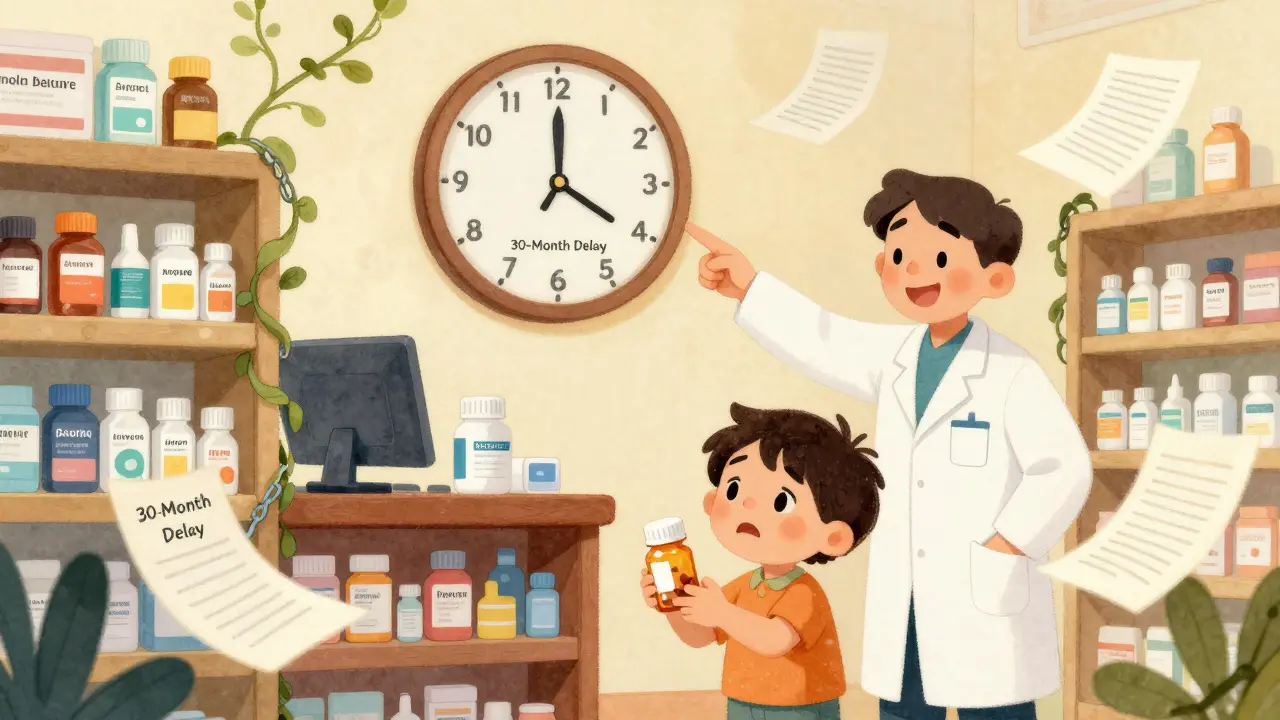Patent Litigation in Pharmaceuticals: What You Need to Know
When you hear patent litigation, legal battles over who has the right to make and sell a drug after its original patent expires. Also known as pharmaceutical patent disputes, it's the quiet force behind why some medicines stay expensive for years—even when cheaper versions are ready to launch. This isn’t just courtroom drama. It directly impacts whether you pay $500 or $20 for the same pill.
Generic drugs, lower-cost copies of brand-name medications approved by the FDA after patent protection ends. Also known as generic equivalents, they’re the main reason drug prices drop—but patent litigation often delays their arrival. Companies that make brand-name drugs file lawsuits against generic makers, claiming their version infringes on a patent. Sometimes, those patents are weak—like covering a pill’s color or packaging—but the lawsuit still blocks competition for months or years. This tactic is called evergreening, the practice of filing new patents on minor changes to extend market exclusivity. The FDA’s ANDA Prioritization Pilot, a program that fast-tracks approval for generic drugs made in the U.S. to prevent shortages. was created partly to cut through this delay.
Why does this matter to you? If a drug’s patent is extended by litigation, your insurer might force you to pay more—even if a generic version exists. You could be stuck paying hundreds more per month because a company filed a lawsuit that had little to do with real innovation. The patent litigation system was meant to protect real breakthroughs. Today, it’s often used as a delay tactic.
Look at the posts below. You’ll see how this plays out in real life: how generic drug prices are set behind the scenes, how the FDA is trying to fix approval delays, and how copay cards can backfire when insurers block generic access. These aren’t isolated issues. They’re all connected to who controls the patent clock—and who pays the price when it’s manipulated.
Recent Patent Cases and Generic Delays: 2023-2025 Examples
Despite FDA approval, generic drugs in the U.S. face average delays of 3.2 years before reaching patients due to patent litigation. Learn how patent thickets, the 30-month stay, and corporate tactics are blocking affordable medications-especially for cancer and complex drugs.
View MorePatent Litigation: How Authorized Generics Affect Competition
Authorized generics let brand-name drug makers launch their own low-cost versions during the first generic's exclusivity period, undermining competition and keeping prices high. Here's how it works-and why it's under fire.
View More

